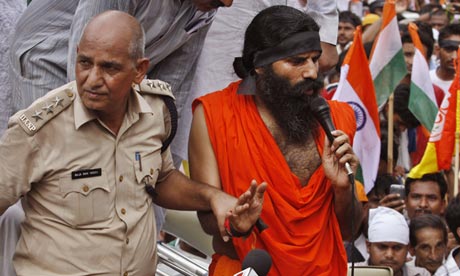By Margaret Janelle R. Hutchinson
Impunity Watch Reporter, South America
QUITO, Ecuador – Ecuador has announced that it will make a decision on the asylum request of infamous WikiLeaks founder Julian Assange, 41, by the end of the week. Assange has been ensconced at the Ecuadorian embassy in London since June 19, avoiding extradition to Sweden where he will face charges of sexual molestation and rape.

Mr Assange has said he fears if he is extradited he may later be sent to the US to face espionage charges, which could carry the death penalty. However, this argument was dismissed by prosecutors at his extradition hearing who said Sweden provided “protection against that sort of threat and violation”. No formal charges have been filed by Washington.
WikiLeaks, which facilitates the anonymous leaking of secret information, has published about 250,000 confidential U.S. diplomatic cables, causing embarrassment to the government and others. It also has published hundreds of thousands of classified U.S. documents relating to the conflicts in Iraq and Afghanistan.
Ecuadorian President Rafael Correa shares Assange’s fears, stating in a television interview Monday evening that,
“The process in Sweden needs to be reviewed, you have to consider the possibility of extradition to the United States, if there’s a secret tribunal there, if there’s any risk of a death penalty. It requires a large amount of information, an analysis of international law to make an informed, absolutely responsible and sovereign decision.”
A decision could be made as early as Wednesday. Correa stated on Monday that the delay in the decision making has been due to the complexity of the case, but earlier reports indicated that Correa was waiting until after the conclusion of the Olympic games in London.
It is not clear how Assange would travel to Ecuador if he is granted asylum. By diplomatic convention, British police cannot enter the embassy without Ecuador’s approval. But he has no way of boarding a plane to Ecuador without passing through London and exposing himself to arrest.
Assange was arrested in Britain in 2010 because Swedish authorities wanted to question him about the sexual molestation and rape allegations, which he denies. His bail conditions included staying every night at the home of a supporter outside London.
British police say he violated his bail by staying at the embassy. After he entered it, they served him with notice to turn himself in — an order he ignored, marking a further violation.
Assange has not indicated why he chose to seek out Ecuador. He interview Correa back in May, and the two seemed to share a similar outlook. The interview showed a shared distaste for U.S. foreign policy and big media outlets.
“Cheer up. Welcome to the club of the persecuted,” Correa told Assange at the end of the 25-minute interview.
Ecuadorean Foreign Minister Ricardo Patino confirmed that President Correa would personally determine the outcome of Assange’s application.
”The president will decide … We will have a meeting with the president to give information of what we have done. We have done a lot, we talked with Britain, we talked to Sweden,” Mr Patino told a news conference on Monday.
Australian Foreign Minister Bob Carr said yesterday that the Australian government had no interest in Mr Correa’s consideration of Assange’s asylum application.
”That’s a matter between him and Julian Assange,” Senator Carr said.
”I’d just say again – if America were interested in Julian Assange they could have sought his extradition from the UK at any time in the last two years.”
For more information, please see:
BBC News – Ecuador to make Assange asylum bid decision ‘this week’ – 14 August 2012
The Christian Science Monitor – Ecuador to decide about Assange asylum this week – 14 August 2012
CNN – Decision on WikiLeaks founder’s asylum request coming, Ecuador says – 14 August 2012
The Sydney Morning Herald – Assange awaits Ecuador verdict – 15 August 2012


